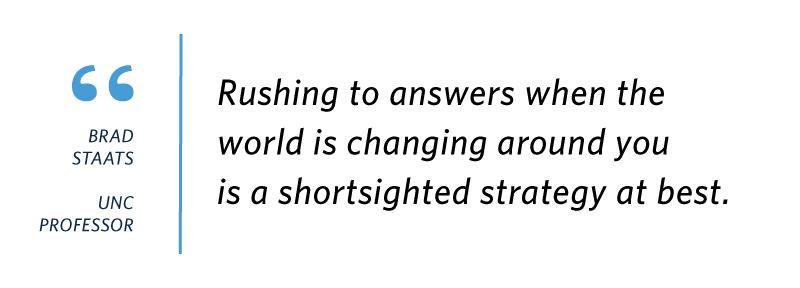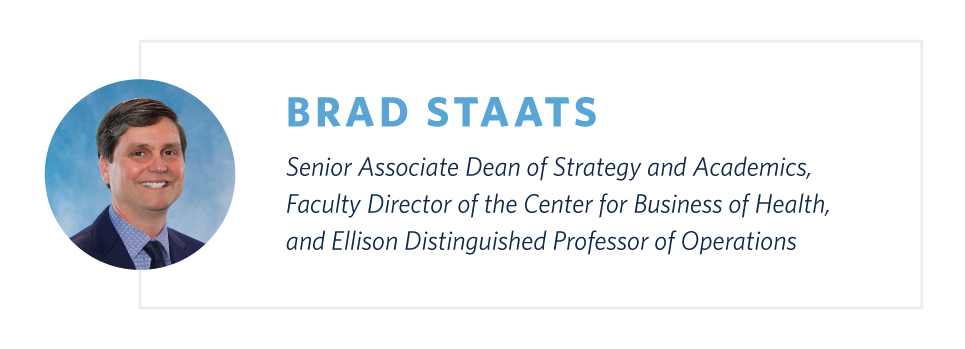Thought Leadership
Ignorance Is Power: 3 Tips for Learning by Asking Questions

“I don’t know.” These are arguably the three most powerful words in the English language, as they challenge us to learn. Yet in a world where the Internet puts seemingly boundless knowledge at our fingertips 24/7, many of us struggle to admit when we do not have an answer. This is especially true in our business lives where the pressures of competition make us especially reluctant to admit our flaws.
However, Brad Staats, UNC professor and author of the book Never Stop Learning: Stay Relevant, Reinvent Yourself, and Thrive, urges us to stop being afraid to proclaim “I don’t know.” This is because admitting our ignorance is the first step in learning, and learning is an essential skill regardless of whether we are leading an organization, just starting in our careers, or somewhere in between.

Rushing to Judgment
The consequences of acting without first embracing the opportunity to learn can be disastrous. Brad illustrates this point by describing the unfortunate experience of a hospital patient “whose misdiagnosis led to a significant and unnecessary [medical] procedure.” For most of us, the consequences of rushing to a conclusion will rarely be so dramatic. Nevertheless, it is crucial that we overcome our reluctance to acknowledge our ignorance. Not only is admitting “I don’t know” the first step in learning, but it also opens the door to allowing others to assist us.

3 Tips for Learning by Asking Questions
Brad reminds us that “rushing to answers when the world is changing around you is a shortsighted strategy at best.” Instead, he advises us to learn by asking questions. Here are three tools that will help you admit “I don’t know,” challenge your preconceptions, and create lasting learning.
1) Challenge your perspective
Rethink the assumption that your existing opinion on a topic is sound. Instead, challenge yourself to discover new insights by asking what might be wrong with that opinion rather than right. As a first step, Brad recommends “building up a team with diverse experiences whose members are willing to tell you what they think.”
2) Practice active listening
Always pay close attention to whoever is speaking to you, whether you agree with their views or not. Actively listening will help you gain a clear understanding of different perspectives, which in turn may help you learn something new.
3) Wait before reaching a conclusion
When talking to someone who holds a different perspective, it can be difficult to resist becoming defensive. However, Brad urges you to “hear that person out and process what you hear before making a decision.”
Avoid Mistakes, Embrace Learning
It can bruise our self-esteem when we are forced to admit, “I don’t know.” Regardless, we should embrace these three words as an opportunity to avoid the costly mistakes that often arise when we rush to a conclusion. By challenging our preconceptions, engaging in active listening, and pausing to consider other perspectives, we can leverage the incredible power of saying “I don’t know” and transform ignorance into lasting learning.
In his book Never Stop Learning: Stay Relevant, Reinvent Yourself, and Thrive, UNC professor Brad Staats provides more insights on dynamic learning. He also provides practical, proven strategies for overcoming barriers to learning as an essential skill for surviving in today’s volatile business environment.
